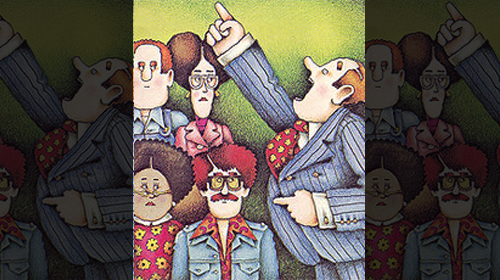
As the election summer heats up, Republicans in Congress are making hay with what are selective leaks by the Obama administration, designed to bolster the presidentÔÇÖs national security cred. At a Senate Judiciary hearing yesterday, Senator John Cornyn (R-TX) went so far as to call for Attorney General HolderÔÇÖs resignation in part because of the leak issue. While the jury is decidedly out on the merits of these claims, these questions do need to be asked. If there is one thing more dangerous than over-classification of government information, itÔÇÖs selective declassification for political gain.
At issue are two recent New York Times long-form articles, on the presidentÔÇÖs targeted killing program and on the Stuxnet virus, which is alleged to have been created by American and Israeli signals intelligence and was apparently designed to handicap the Iranian nuclear program. Both stories featured multiple leaks of classified information from anonymous senior government sources. Both stories also made the president look like a super-hero.
Now, while it is emphatically possible that these leaks were not intended to boost the administrationÔÇÖs national security profile, we should all be able to agree that when any administration releases favorable information while holding back the bad news, especially in an election year, this is kinda bad.
CongressÔÇÖs response illustrates precisely why. Every time this happens, instead of pushing for greater transparency and declassification, Congress turns into a plumber trying to plug all the leaks. The bipartisan leaders of the intelligence committees are no exception, and including language in the 2013 intelligence authorization bill to further punish leaking.
But the damage of selective leaks goes much further than just providing traction to anti-leak bills.
Usually, leaks are a very good thing for democracy and free speech, as Professor Bruce Ackerman in an excellent op-ed this morning. They are essential tools in creating an informed populace, encouraging free and robust debate and providing a check against government excess. We protect whistleblowers and the press for exactly this reason. Selective leaking, which can be distinguished from the typical leak by the extent to which it serves to suppress rather than increase transparency and accuracy of information about government affairs, does the opposite. It serves only to misinform the populace, discourage free and open debate and, indeed, facilitate government excess.
To be clear, we believe that a great deal of the information thatÔÇÖs currently classified should not be classified at allÔÇötoo often, classification is used as a mechanism for insulating government decisions from scrutiny and shielding government officials from accountability. But, if thereÔÇÖs one thing worse than too much classified information, it is when classified information is used inappropriately to favor one side in the political debate. When an administration leaks only its wins, we all lose. We cannot make an informed decision either about the competency of the administration or the propriety of its actions. This is perhaps the most dangerous thing one can imagine in a democracy with a strong executive.
Additionally, this is far from a new argument. Jameel Jaffer, └¤░─├┼┐¬¢▒¢ß╣¹ deputy legal director, published an in the Los Angeles Times last year on earlier disclosures by a former CIA lawyer in connection with the targeted killing program. There, he noted that selective declassification is often also used by the government in litigation with groups like the └¤░─├┼┐¬¢▒¢ß╣¹. ÔÇ£Routinely,ÔÇØ Jaffer writes, ÔÇ£officials insist to courts that the nation's security will be compromised if certain facts are revealed but then supply those same facts to trusted reporters.ÔÇØ Jaffer and └¤░─├┼┐¬¢▒¢ß╣¹ National Security Project Fellow Nate Wessler recently revisited these concerns in another op-ed, available .
This strategyÔÇöwhere the government selectively claims state secrets to avoid public accountabilityÔÇöis of a piece with selective declassification in the context I discussed above, where only favorable facts are leaked for political gain. Both highlight the unique dangers in classification policy and secrecy in government. No less a civil libertarian than then-Representative Donald Rumsfeld (one of the strongest supporters of the Freedom of Information Act) issued exactly this warning in the lead up to FOIAÔÇÖs passage, quoted in the └¤░─├┼┐¬¢▒¢ß╣¹ÔÇÖs drone FOIA reply brief: ÔÇ£Certainly it has been the nature of Government to play down mistakes and to promote successes. This has been the case in the past administrations. Very likely this will be true in the future.ÔÇØ And it may well be true now.
As Congress continues to formulate next yearÔÇÖs intelligence authorization bill, letÔÇÖs hope this debate cools and the consequent push in Congress for harmful anti-leak legislation fades away.
Learn more about free speech: Sign up for breaking news alerts, , and .

